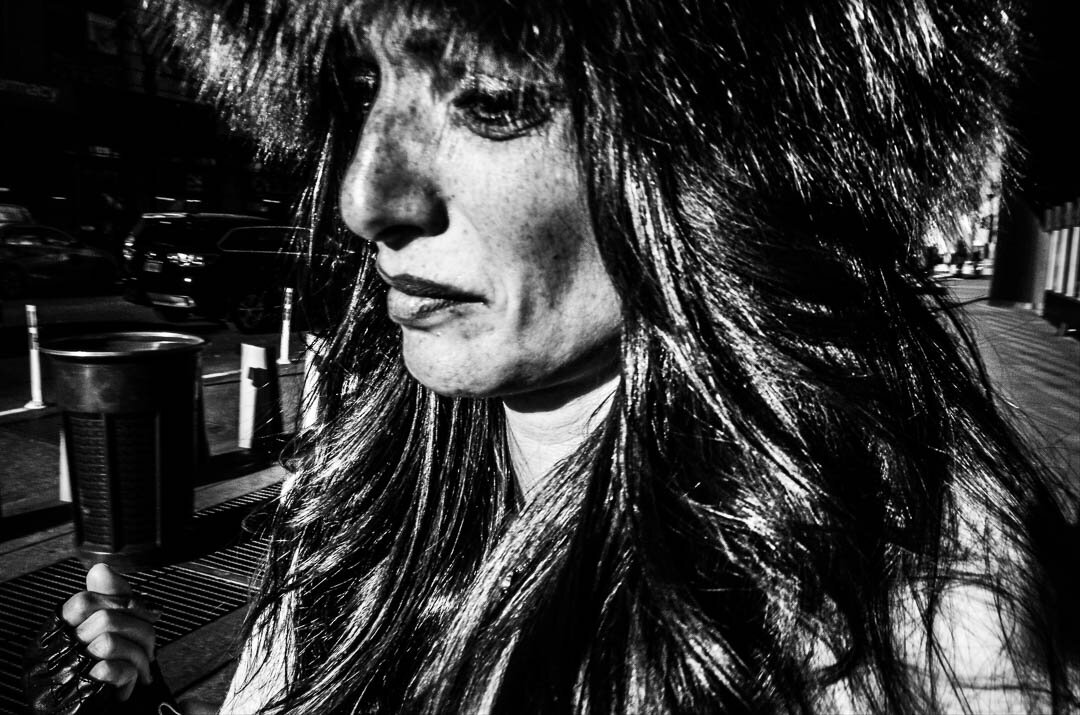
I like to share with you my Ricoh GR Zone Focus Tips Howto shoot Closeup Street Photography using Snap Focus, Full Press Snap Focus and Manual Focus Mode.
To get an impression of shooting street quickly consider watching the two short scenes from documentaries about Jeff Mermelstein and Bruce Gilden. Both are renowned street photographers living in NYC.
Jeff Mermelstein
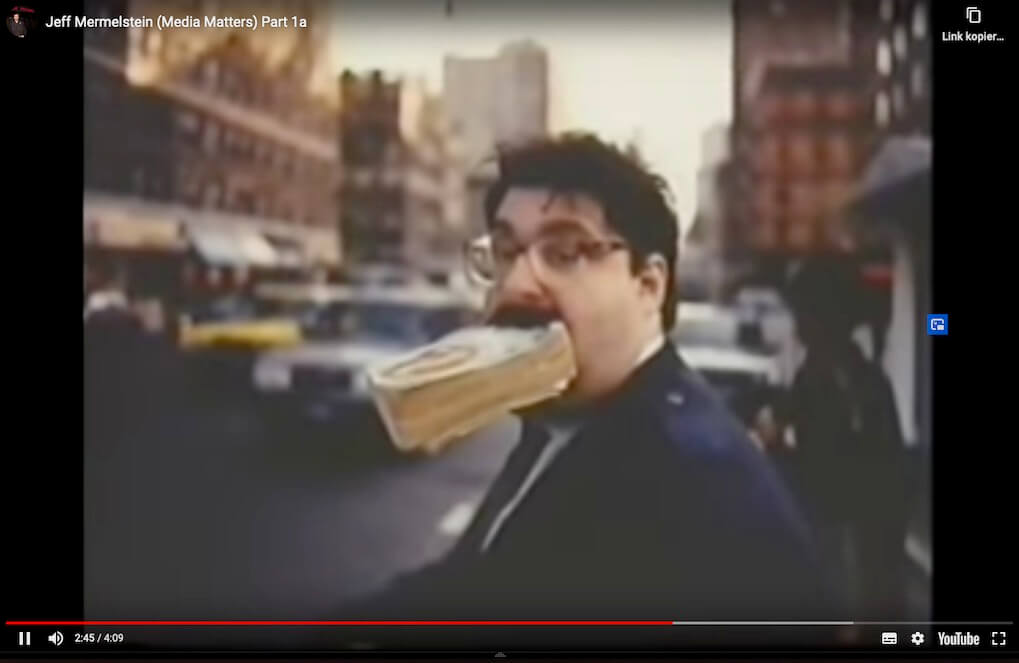
Bruce Guilden
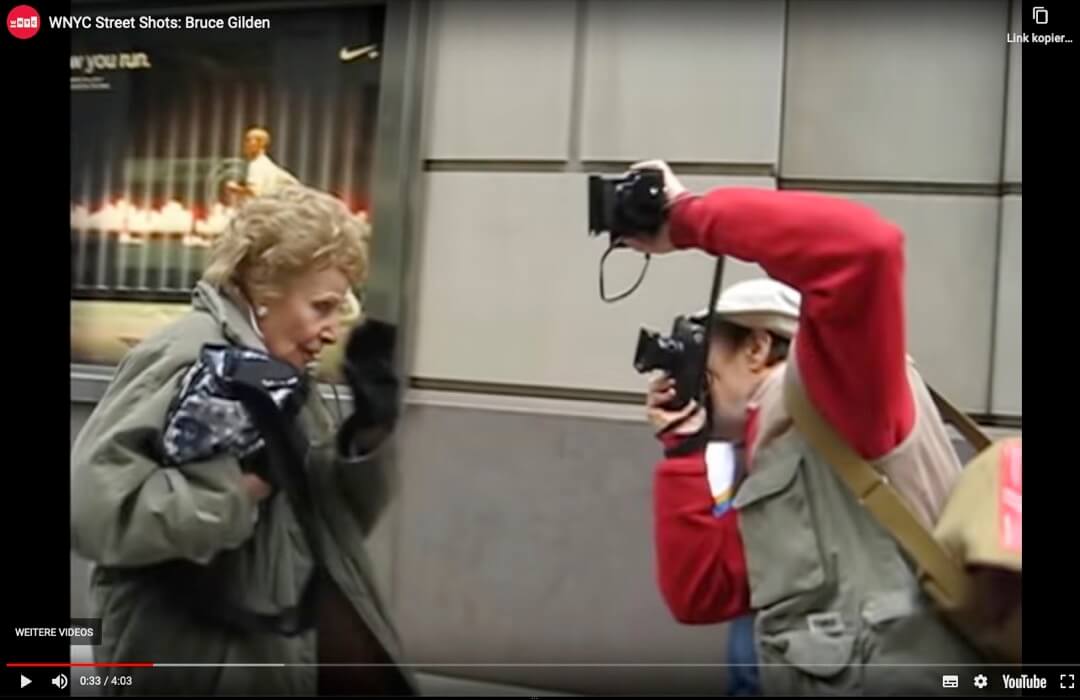
In the videos both use manual Leica rangefinder cameras which only support manual focus lenses.
Luckily our digital GRs feature Auto Focus, but it is of limited use when we want to do it like Jeff or Bruce. In order to make photographs quickly we can not rely on the GRs mixed Auto Focus performance. Instead we need to learn using the Zone Focus method, which consists of a preset focus distance in combination with the right f-stop Aperture and Shutter Speed number.
This posts aims to help understanding how to shoot with a GR, GR II and GR III using the Zone Focus Technique.
Ricoh GR Zone Focus Modes
Focus distance and Aperture define a limited Zone of Focus (also known as Depth of Field or short DoF) in which things appear acceptably sharp. The following Ricoh GR, GR II & GR III Focus Modes allow us to use Zone Focus.
- Snap Focus – A dedicated focus mode that allows shooting using one of the six predefined focus distances (1 m, 1,5 m, 2 m, 2,5 m, 5 m or Infinity).
- Full Press Snap Focus – A function to directly override Auto Focus and shoot using one of the six Snap Focus distances.
- Manual Focus – A dedicated focus mode that allows setting the desired focus distance anywhere between 6 cm (GR III), 10 cm (GR & GR II) and Infinity.
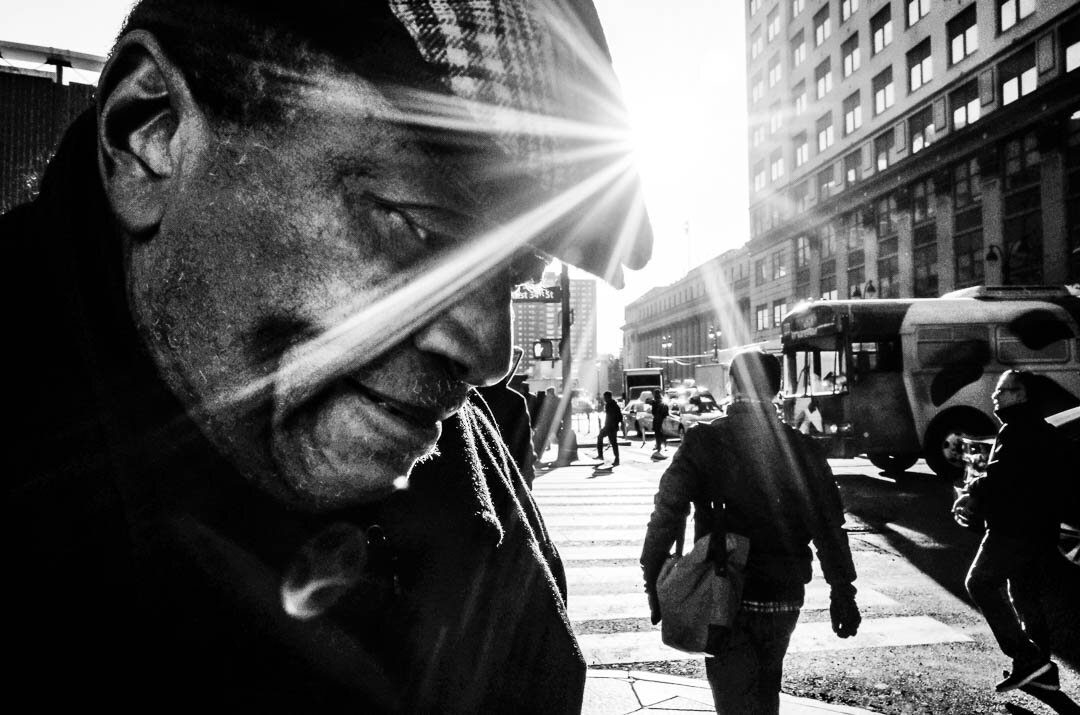
How to Control the Depth of Field Zone
Before learning how and when to use Snap or Manual focus we need to understand how to set and adjust the Depth of Field Zone.
Adjusting Focus Distance
When using the Ricoh GR, GR II or GR III Snap and Manual Focus you are telling the camera to focus on a specific distance in front of the lens.
- In Snap Focus mode this distance can be set to
- 1 m, 1,5 m, 2 m, 2,5 m, 5 m or ∞ Infinity
- 3.2 ft, 4.9 ft, 6.5 ft, 8.2 ft, 16 ft. or ∞ Infinity
- In Manual Focus mode, the focus distance can be set anywhere between:
- 6 cm / 2.3 in to ∞ Infinity (GR III)
- 10 cm / 3.9 in to ∞ Infinity (GR & GR II)
The image below will give you an idea how a photograph of an average sized person looks according to the 1m, 2m and 5m Snap Focus and 50cm, 10cm Manual Focus distance.
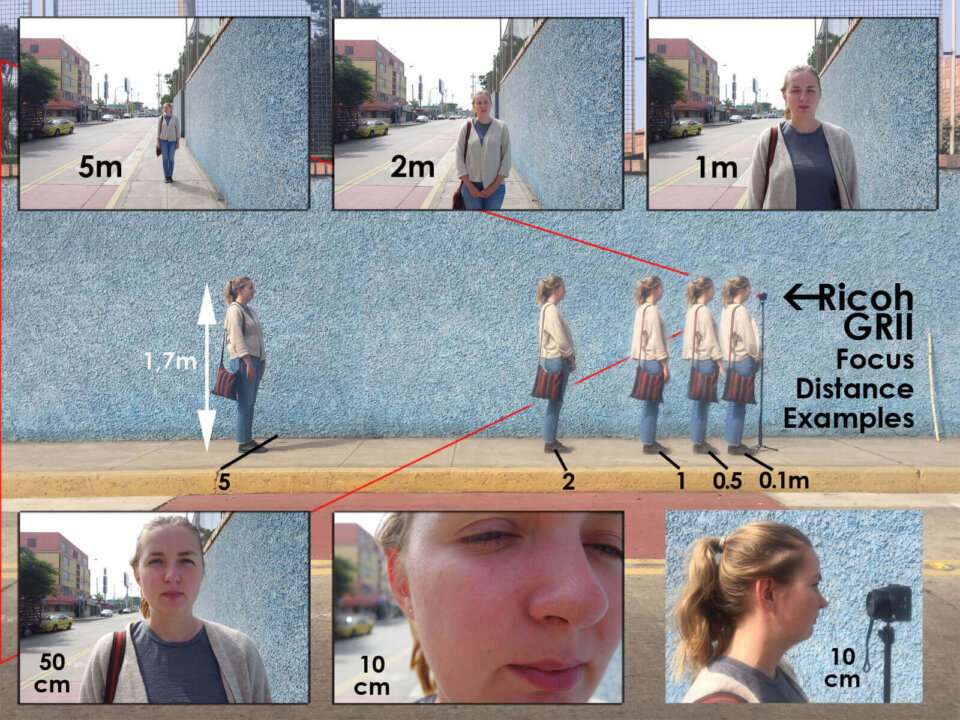
Adjusting Aperture
Depending on the chosen Aperture f-stop (f/2.8 – f/16) a Depth of Field Zone is created before and behind the chosen focus distance.
- The Depth of Field Zone represents the space before and behind the focus distance in which the object is photographed with acceptable sharpness.
- The closer the object is to the chosen focus distance, the sharper it will appear on the photograph (assuming a fast enough Shutter Speed is used accordingly).
Example
Lets set the Aperture to f/8 and Snap Focus Distance to 1,5 m.
- With these settings the Depth of Field Zone starts from 88 cm / 2.88 ft in front of the camera lens and ends 5.14 m / 15.8 ft away from the camera lens. In total 4.2 m / 13.7 ft.
- Object inside this zone will be captured with acceptable sharpness.
- The nearer the object to the 1.5 m focus distance, the sharper will it appear. (Assuming a fast enough Shutter Speed is used accordingly)
The image below is an example of the created Depth of Field Zone.
Note: The blur in the 5m photo is artificially created and only an approximation of the expected out of focus blur.
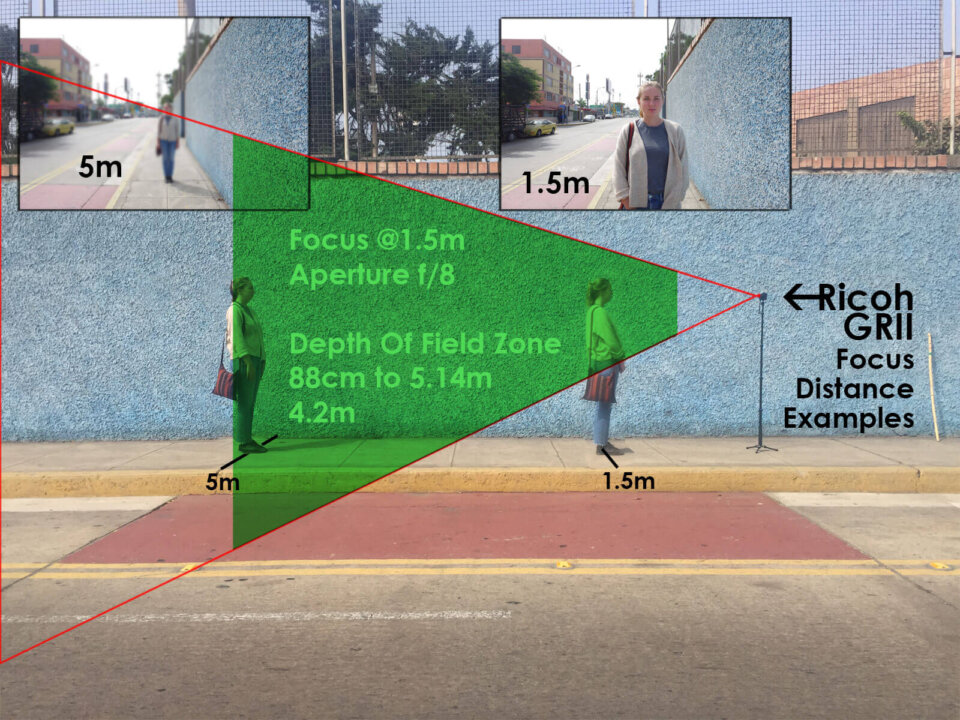
Depth of Field Summary
Adjusting the lenght of the Depth of Field Zone is done by either changing the Focus Distance, the Aperture f-stop number or both.
- To increase the DoF Zone
- Increase the Focus Distance
- Increase the Aperture f-stop number
- To decrease the DoF Zone
- Decrease the Focus Distance
- Decrease the Aperture f-stop number
Snap Focus Depth of Field Comparison Chart
The chart compares the lenght of the created Depth of Field for each Ricoh GR Snap Focus distance and full Aperture f-stop numbers f/2.8, f/4, f/5.6, f/8 and f/16.
How to read the DoF Comparison Chart
- Choose a Focus Distance number in the top row (for example 1.5 m)
- Choose a Aperture f-stop number in the 2nd row (for example f/8)
- Read the DoF start and end distance numbers from the top and end of the column beneath.
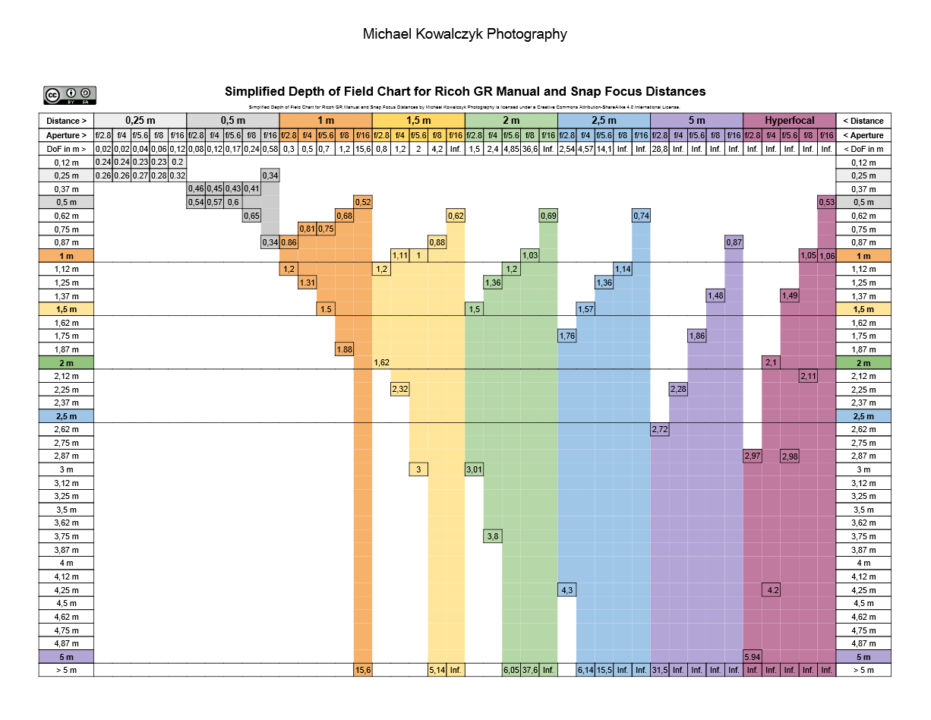
What is largest possible Ricoh GR DoF Zone?
- The largest possible DoF Focus Zone for Ricoh GR, GR II and GR III starts at 0,53 m and goes to Infinity. It is created when the Focus Distance is set to 1,06 m and the Aperture to f/16.
Recommended Ricoh GR Zone Focus Settings
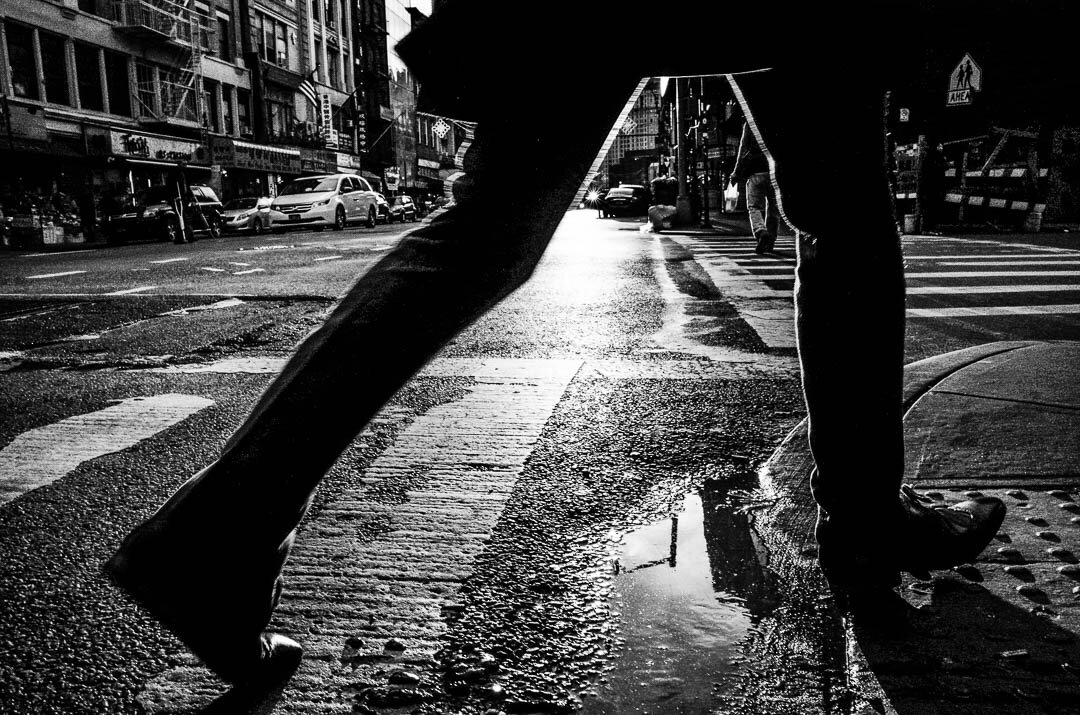
The 1,5 m Snap Focus Distance & f/8 Aperture combination is good starting point for trying out Zone Focusing with a GR, GR II and GR III for the first time.
- You have plenty of Depth of Field to work with.
- The DoF Zone extends from 88 cm / 2.88 ft in front of the lens to 5.14 m / 15.8 ft. In total 4.2 m / 13.7 ft.
- The f/8 Aperture does not require high ISO values when shooting with reasonably fast Shutter Speeds in daylight conditions.
- 1/250th is a reasonably fast Shutter Speed for freeze-capturing regular human actions speeds like walking
- To maintain this speed I recommend using a shooting mode which allows using Auto-ISO, like TAv on GR & GR II or M on GR III.
- Set the Auto-ISO min and maximum numbers to a wider bandwidth ISO 100-3200 so that the Shutter Speed will remain stable, even if the available light intensity drops. (Those worried about Chromatic Noise should lower the maximum ISO to 1600 accordingly.)
When & How To use Snap Focus, Full Press Snap & Manual Focus
Snap Focus
A dedicated focus mode that allows shooting using one of the six predefined focus distances (1 m, 1,5 m, 2 m, 2,5 m, 5 m or Infinity).
When to use Snap Focus
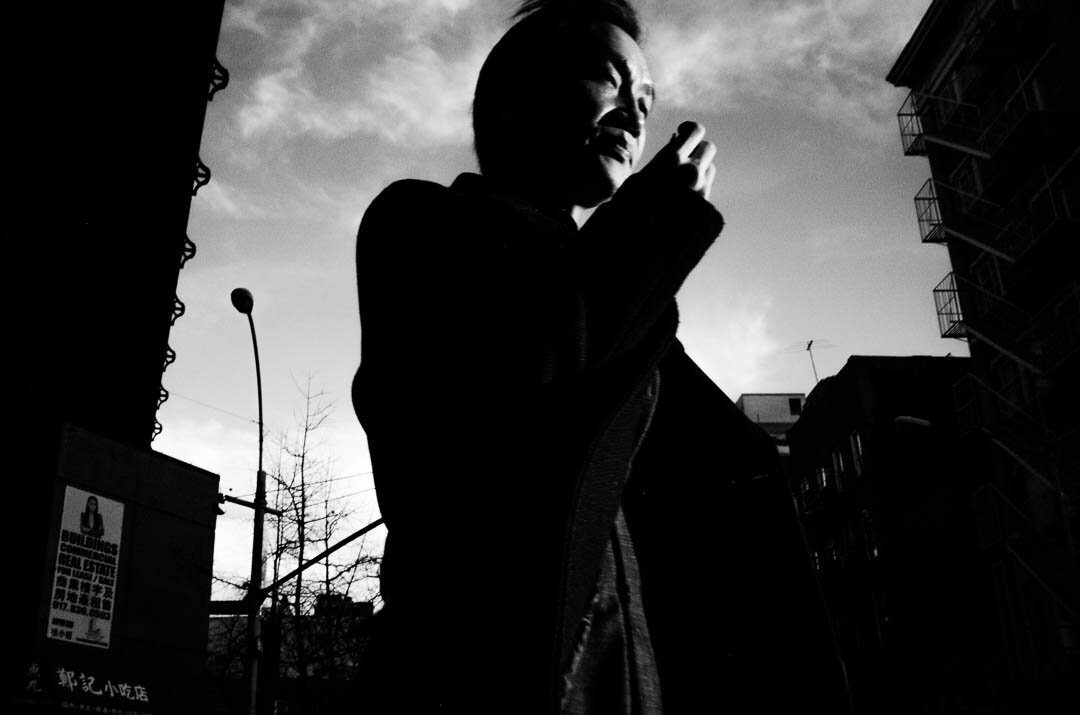
It is liberating to set and forget about the focus distance, especially in combination with a higher f-stop number. The less settings you need to think about the more time you have to focus on timing and composition!
- Imagine setting the Snap Focus distance to 1m and the Aperture to f/16. The resulting 15,6 m long Depth of Field Zone (0,52 cm to 15,6 m) is huge and theoretically allows you to capture scenes like Medium Close Ups of people to Very Wide Shots without loosing time to Auto Focus.
- f/16 works best in bright and evenly lit environments such as a clear sunny day.
For focusing on subjects besides the DoF we must change to Manual or Auto Focus Mode. Switching from Snap to Auto Focus is easily done by appointing the (AF/Snap) switch function to a Fn Button.
How to use Snap Focus
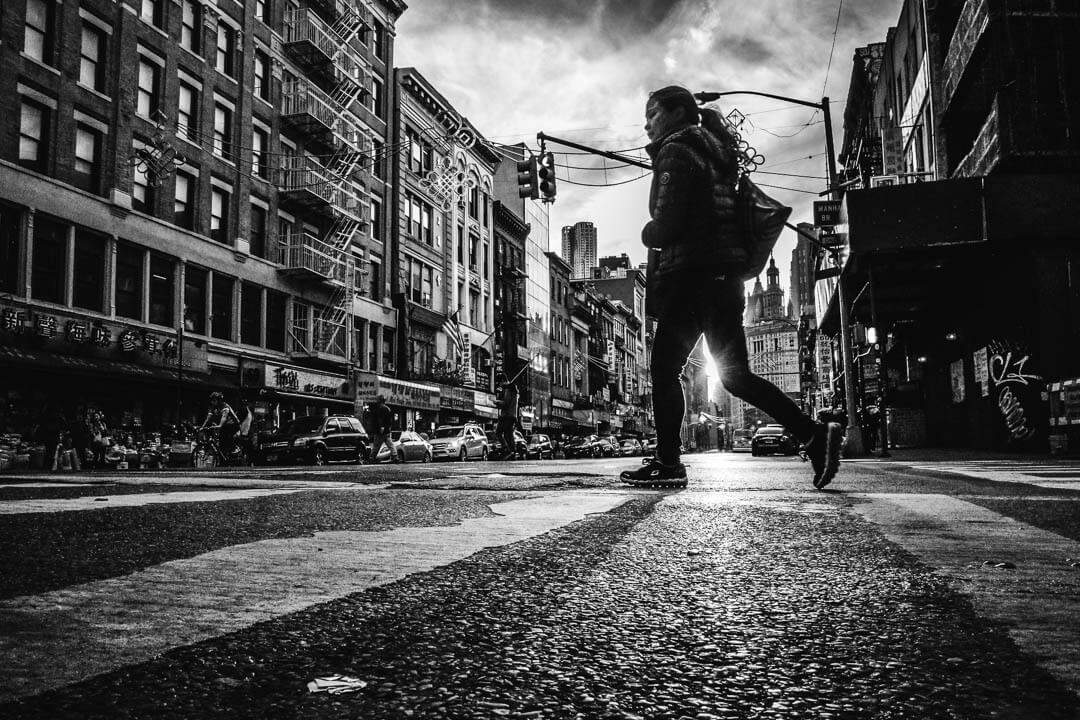
- Select Snap Focus Mode in the camera menu: Menu > Shooting > Snap
- Set the Snap Focus distance, for example to 1 m
- Either from the camera: Menu > Shooting > Snap Focus Distance > 1 m
- Or by using a button combo: Press and hold the macro button (up) + turn the front adjustment wheel to the left (decreasing distance) or right (increasing distance)
- Notice that the selected Snap Focus distance is displayed in the upper right corner of the screen.
- Select a shooting mode which supports AUTO-ISO and Aperture change – P, Av, TAv or M (GR III)
- I recommend using either Av or TAv modes, both respect the chosen Aperture and offer use of Auto-ISO.
- On the GR III the TAv mode is available in Manual Mode with Auto-ISO.
- Select a higher Aperture number to increase the Depth of Field (f/16)
- Setting the Aperture to f/16 will results in a 15,6 m long of Depth of Field Zone.
- Check the Snap Focus DoF-Chart for other numbers or use the Online DoF Calculator.
- Try it out.
- Make sure that the Shutter Speed is fast enough to freeze peoples movements (1/250th – 1/500th should be safe)
Full Press Snap Focus
A function to directly override Auto Focus and shoot using one of the six Snap Focus distances
When to use Full Press Snap Focus
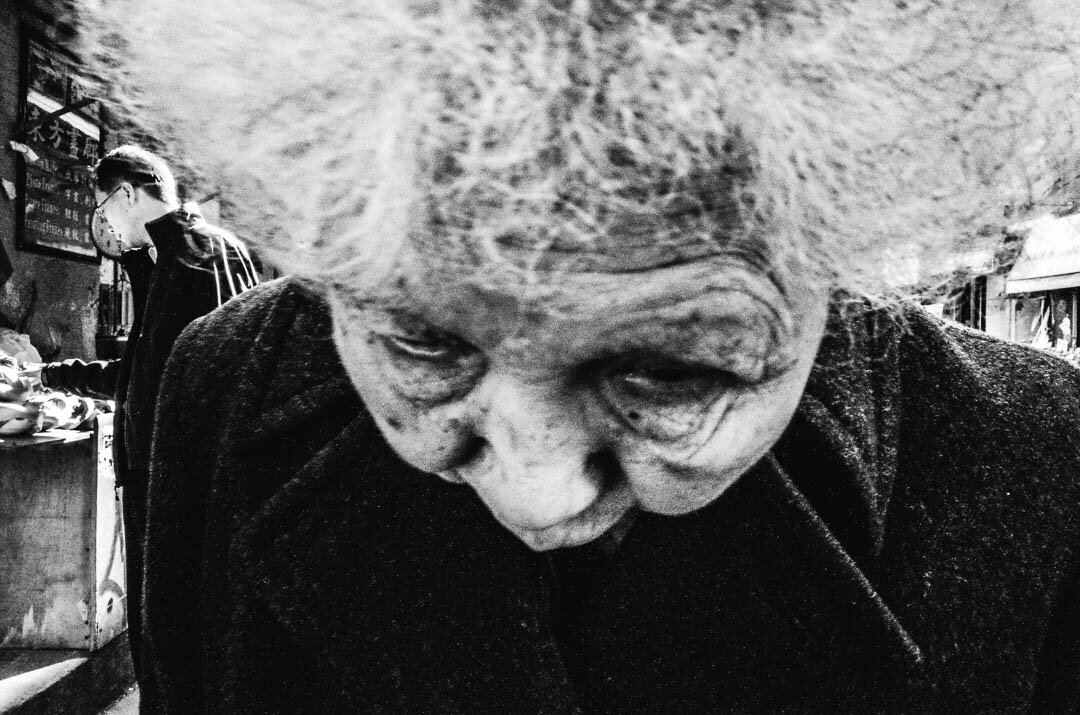
This function can become handy when you use Auto Focus as your default focus mode, as I do.
- Now and then I notice something worth photographing but there is very little time to react. Then I can point the camera and press the shutter button down fully. By doing so I tell the camera to simultaneously focus on my chosen Snap Focus distance and expose.
- The camera still needs to time move the lens to the Snap Focus position and I need to have luck that the photographed subject is in the DoF Zone, but at least I tried.
It is a nice to have reserve para(shoot).
Thinking about it now, it could be made more useful if we could also set a specific Aperture number together with the Full Press Snap Focus distance!
How to use Full Press Snap Focus
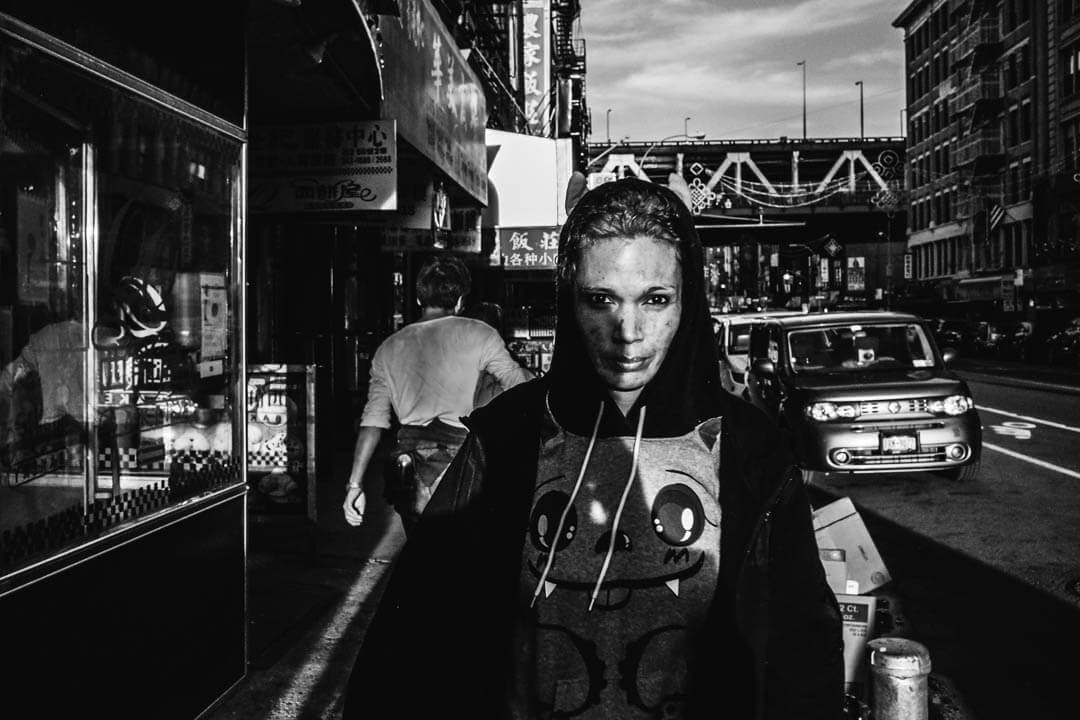
- Enable Full Press Snap in the camera menu: Menu > Shooting > Full Press Snap > On or Auto-Hi ISO
- Choose any Auto Focus mode
- Set the Snap Focus distance, for example to 1.5 m
- Either from the camera: Menu > Shooting > Snap Focus Distance > 1.5 m
- Or by using a button combo: Press and hold the macro button (up) + turn the front adjustment wheel to the left (decreasing distance) or right (increasing distance)
- Notice that the selected Snap Focus distance is displayed in the upper right corner of the screen.
- Try it out
- While shooting press the shutter button completely down immediatley.
- The camera will omit to Auto Focus and shoot using the Snap Focus distance which you have chosen in step 3.
- GR III Street Edition – “Full Press Snap by LCD” Special Touch Function!
- Instead pushing the Shutter Button the Camera allows making Full Press Snap pictures by Touching the Screen.
Manual Focus
A dedicated focus mode that allows setting the desired focus distance anywhere between 6 cm (GR III), 10 cm (GR & GR II) and Infinity.
When to use Manual Focus
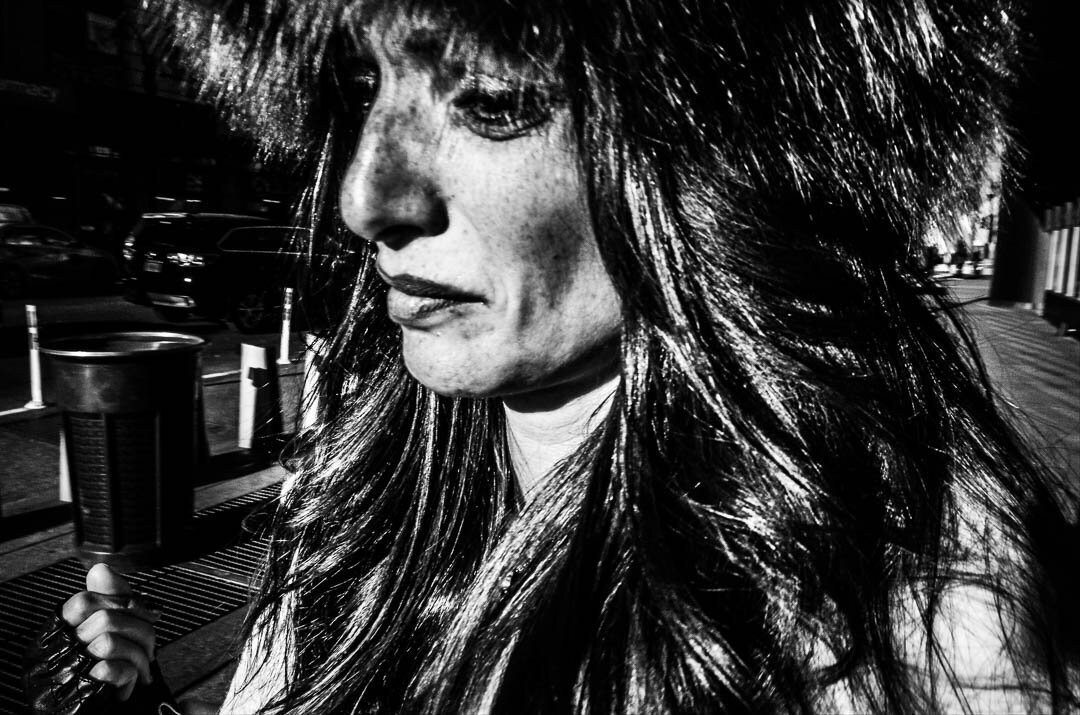
Robert Capa once stated “If your pictures aren’t good enough, you’re not close enough”. This is up for discussion but fact is that the closest Ricoh GR Snap Focus distance (1 m) and tiniest Aperture (f/16) will not enable you to quickly shoot sharp photos of people or objects up close.
- Can you guess the focus distance of the photo above? If not go back up to see the focus distance example
- To make this close up portrait I had to switch to Manual Focus and select a focus distance close to the macro range
Manual focus mode opens up the whole DoF range but the GRs focus adjustment implementation is rather clunky and the assisting focus display modes do not help much either IMHO.
Quick Manual Focus Tip!
Use Auto Focus first and change to Manual Focus by appointing the (AF/MF) switch function to a Fn Button. Once AF is acquired the camera stores the focus distance. It stays, even after power off/on. A really handy feature which I use a lot.
How to use Manual Focus
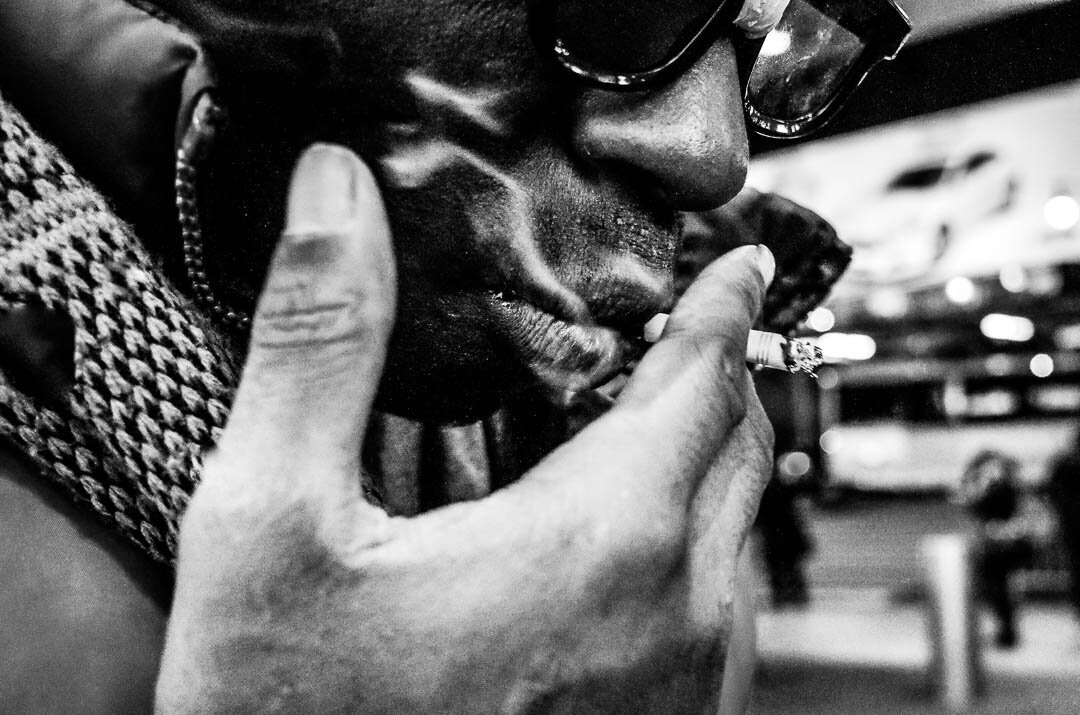
- Select Manual Focus Mode in the camera menu: Menu > Shooting > MF
- Set the Manual Focus distance for example to 0.5 m
- Using a button combo: Press and hold the macro button (up) + turn the front adjustment wheel to the left (decreasing distance) or right (increasing distance)
- Notice how the orange distance indicator bar is moving up and down on the lower left side of the display. The depth-of-field zone is displayed as a green rectangle around it.
- Select a shooting mode which supports AUTO-ISO and Aperture change – P, Av, TAv or M (GR III)
- I recommend using either Av or TAv modes, both respect the chosen Aperture and offer use of Auto-ISO.
- On the GR III the TAv mode is available in Manual Mode with Auto-ISO.
- Select a higher Aperture number to increase the depth of field (f/8)
- Setting the Aperture to f/8 will results in a shallow 0.24 cm depth of field with 0.41 cm of focus in front and 0.65 cm behind the 0.5 m away subject.
- Use the Online DoF Calculator to get numbers for other f-stops.
- Try it out.
- Make sure that the Shutter Speed is fast enough to capture movements (1/250th – 1/500th should be safe)
Don´t be afraid to get close, stay polite and be creative!
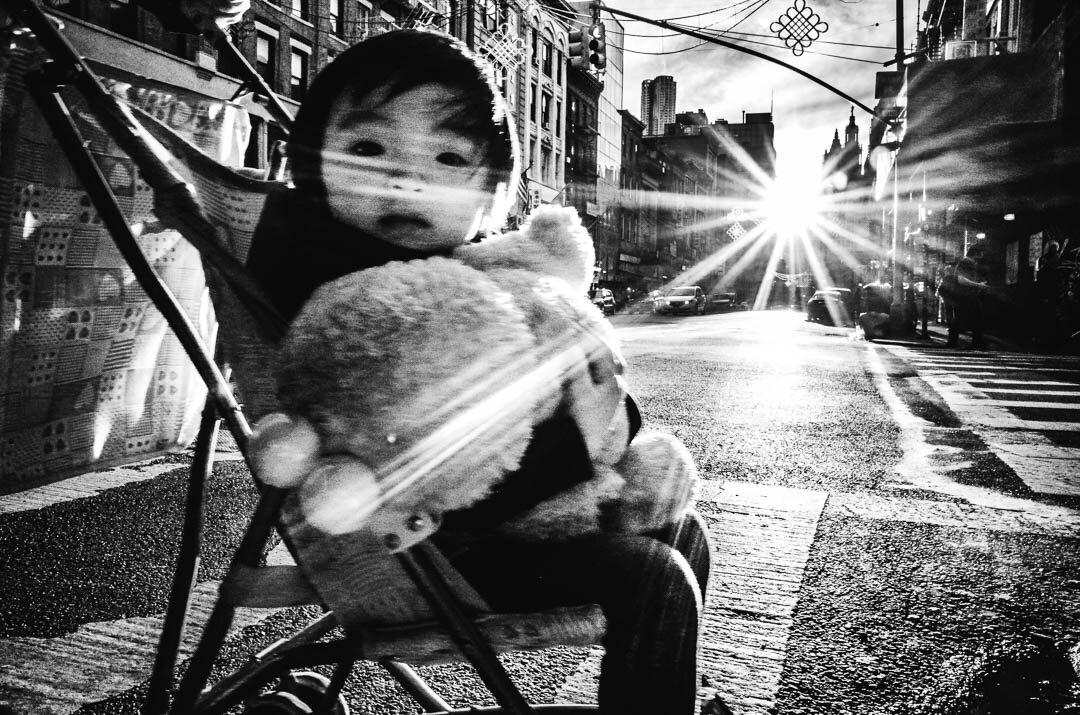
Latest post update 6th Sept. 2019 (Extending contents and moving post with comments to a new home, from michaelkowalczyk.eu to michaelkowalczyk.eu)
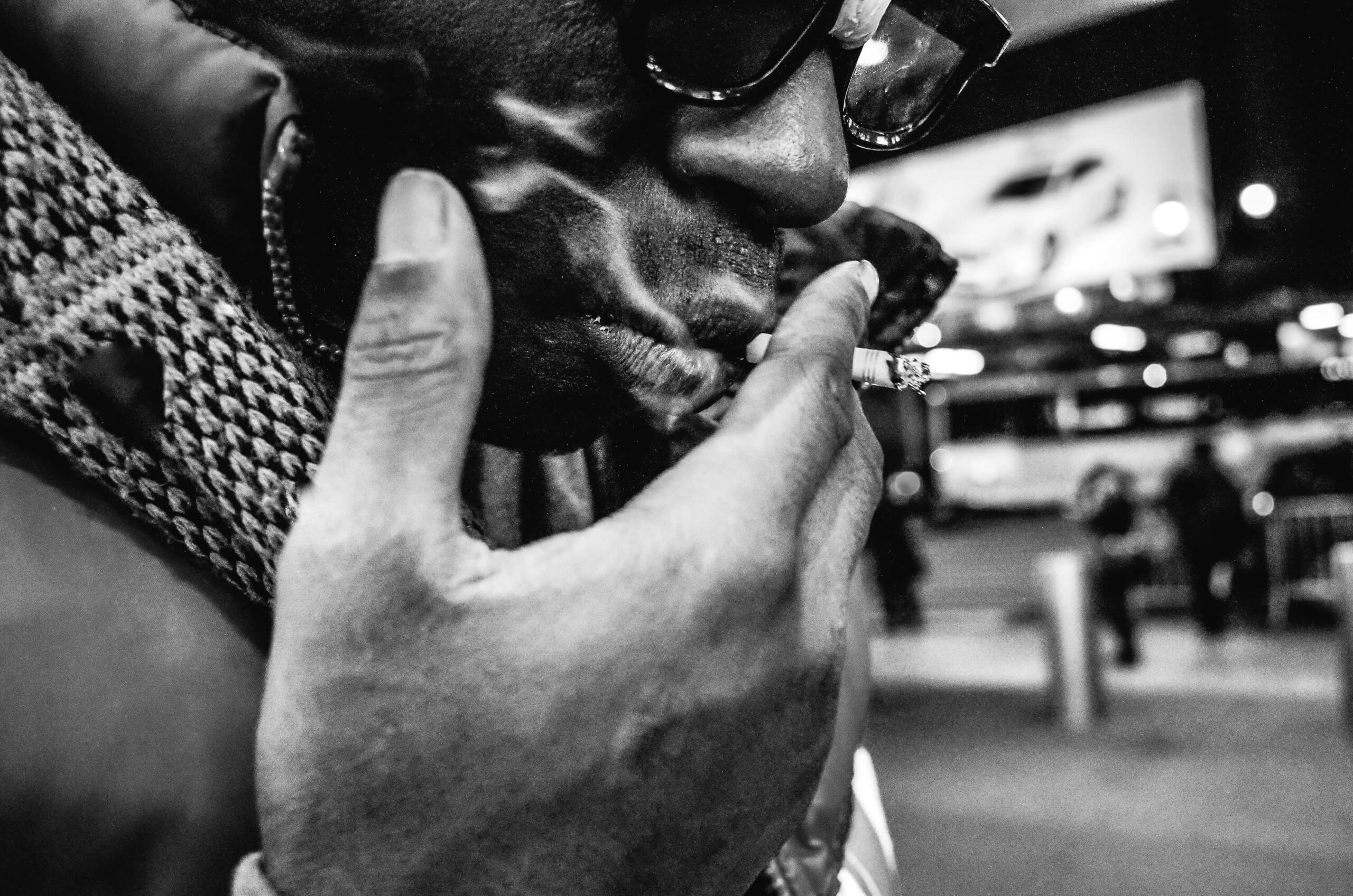
Leave a Reply